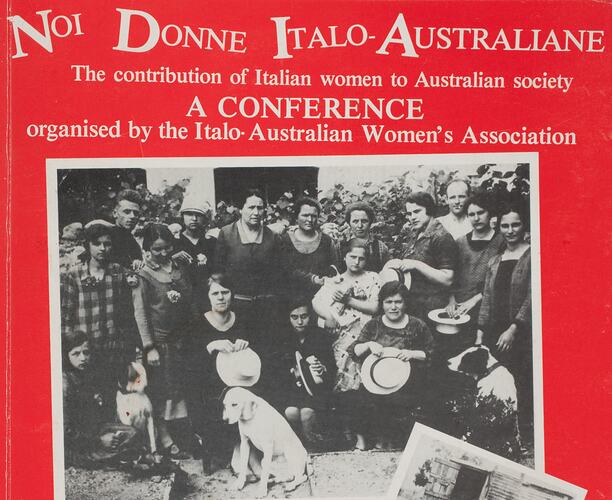The Migrant Women Activists' Collection or Trailblazers Collection comprises material obtained from individuals and organisations in the course of developing the 'Trailblazers: migrant women activists' exhibition which was presented in the Immigration Museum's Community Gallery from March to July 2008.
The history of migrant women is poorly represented in museum and archival collections, as these women rarely had time to document, review and reflect on their actions, let alone ponder how they would be remembered and celebrated in the future. Although a little evidence of their work can be found in the collection of broader feminist activities. The Trailblazers collection is the only one in Victoria that is concerned exclusively with the activities of migrant women.
It includes documents, photographs, objects and oral history interviews which document the earliest days of migrant women's activism in Victoria. It tells the stories and efforts of these migrant women, many un-named, and demonstrates the innovative ways in which they conducted their campaigns, spread information and raised consciousness about the particular issues facing migrant women in Victoria.
The collection focuses particularly on individuals and organisations that lobbied for or were active in influencing the formation or reformation of government policies. The material is largely from the Italian, Greek and Turkish communities, in particular, but also reflects broader efforts supporting migrant women services generally, especially campaigns for improvements to domestic violence services, women's health and contraception, working conditions and childcare.
The objects and documents in this collection have social significance as evidence of the tumultuous period in the 1970s which culminated in the landmark recommendations of the Galbally Report of 1978. The pioneering activity documented in this collection records the involvement and contribution that women from non English speaking backgrounds and ethno-specific welfare organisations had in the establishment of support services for migrant women and the impact they made on policy making across the areas of health, welfare, legal, social and educational service provision.
More Information
-
Keywords
Women Issues, Women's Associations, Women's Movement, Women's Role, Women's Issues, Women's Liberation, Immigration, Immigration Museum
-
Authors
-
Article types
